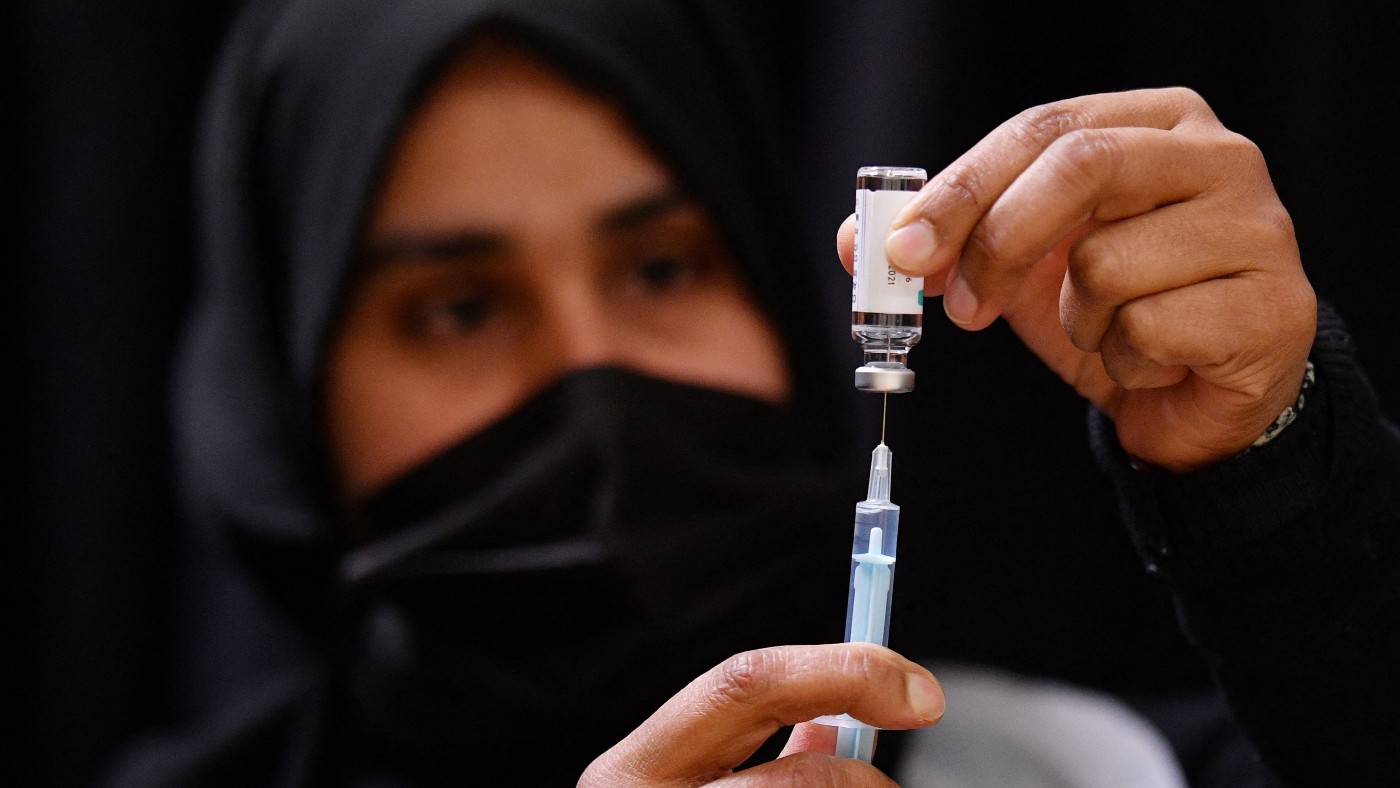Why self-amplifying RNA vaccines are ‘revolutionary’
Experts hope new technology may herald major step forward in vaccinology beyond Covid-19

A free daily email with the biggest news stories of the day – and the best features from TheWeek.com
You are now subscribed
Your newsletter sign-up was successful
UK scientists are working on a Covid-19 vaccine using a new technology that could potentially prevent countless deaths from a wide variety of diseases.
Indeed, if successful, the application of “self-amplifying RNA” to trigger an immune response to Covid-19 could signal “a revolution in vaccination”, says The Independent.
The coronavirus jab is being developed by an Imperial College London (ICL) team led by professor of mucosal infection and immunity Robin Shattock, who told the newspaper in November that they were “the only group in the UK that are pioneering this approach”.
The Week
Escape your echo chamber. Get the facts behind the news, plus analysis from multiple perspectives.

Sign up for The Week's Free Newsletters
From our morning news briefing to a weekly Good News Newsletter, get the best of The Week delivered directly to your inbox.
From our morning news briefing to a weekly Good News Newsletter, get the best of The Week delivered directly to your inbox.
How does self-amplifying RNA work?
More traditional vaccines - including the AstraZeneca and the Johnson & Johnson-Janssen Covid jabs - use a weakened or inactivated form of a virus or bacterium to generate an immune response within a recipient. By contrast, Imperial’s jab contains small sections of the virus’s genetic code, known as self-amplifying ribonucleic acid (RNA), that create the “spike proteins” found on the exterior of coronaviruses, rather than the entire virus.
Once injected, the self-amplifying RNA produces copies of itself inside muscle cells, making lots of spike proteins. The recipient’s immune system then identifies these spikes on the surface of muscle cells and create antibodies against the virus.
“These antibodies have an important role in fighting viruses as they bind to the spike proteins and may prevent the virus from infecting cells,” the ICL website explains.
A free daily email with the biggest news stories of the day – and the best features from TheWeek.com

What is ‘revolutionary’ about this new method?
Compared with traditional vaccines, one key advantage of the self-amplifying technology is that “many more doses” can be produced thanks to the fractional amount of RNA required per injection. “That means we can make ten to a hundred times more doses that can be shipped around the world,” Shattock told BBC Radio 4's World at One last week.
Self-amplifying RNA may prove to be a “very important advancement for certain aspects of medicine” in the coming years, he continued. The “highly adaptable” technology could be applied to other infectious disease targets including “some of the really difficult challenges in vaccinology like HIV, TB, Malaria”. The technology is already being applied in the development of jabs to combat Ebola, Lassa fever and the Marburg virus.
When could the new technology be rolled out?
The Imperial team predicted last June that if proven to be effective, enough doses of their jab to immunise 40 million people could be rolled out within a year, as the BBC reported at the time. However, a clinical trial of the vaccine that began back then is still ongoing.
But while his jab has taken longer to develop than those made by other pharmaceutical companies, Shattock remains unphased. The technology’s value to medicine “is partly in today but much more in tomorrow”, with self-amplifying RNA potentially proving to be a “positive legacy” of the Covid pandemic, he told World at One.
-
 The Olympic timekeepers keeping the Games on track
The Olympic timekeepers keeping the Games on trackUnder the Radar Swiss watchmaking giant Omega has been at the finish line of every Olympic Games for nearly 100 years
-
 Will increasing tensions with Iran boil over into war?
Will increasing tensions with Iran boil over into war?Today’s Big Question President Donald Trump has recently been threatening the country
-
 Corruption: The spy sheikh and the president
Corruption: The spy sheikh and the presidentFeature Trump is at the center of another scandal
-
 A Nipah virus outbreak in India has brought back Covid-era surveillance
A Nipah virus outbreak in India has brought back Covid-era surveillanceUnder the radar The disease can spread through animals and humans
-
 Trump HHS slashes advised child vaccinations
Trump HHS slashes advised child vaccinationsSpeed Read In a widely condemned move, the CDC will now recommend that children get vaccinated against 11 communicable diseases, not 17
-
 A fentanyl vaccine may be on the horizon
A fentanyl vaccine may be on the horizonUnder the radar Taking a serious jab at the opioid epidemic
-
 Health: Will Kennedy dismantle U.S. immunization policy?
Health: Will Kennedy dismantle U.S. immunization policy?Feature ‘America’s vaccine playbook is being rewritten by people who don’t believe in them’
-
 How dangerous is the ‘K’ strain super-flu?
How dangerous is the ‘K’ strain super-flu?The Explainer Surge in cases of new variant H3N2 flu in UK and around the world
-
 Vaccine critic quietly named CDC’s No. 2 official
Vaccine critic quietly named CDC’s No. 2 officialSpeed Read Dr. Ralph Abraham joins another prominent vaccine critic, HHS Secretary Robert F. Kennedy Jr.
-
 This flu season could be worse than usual
This flu season could be worse than usualIn the spotlight A new subvariant is infecting several countries
-
 Covid-19 mRNA vaccines could help fight cancer
Covid-19 mRNA vaccines could help fight cancerUnder the radar They boost the immune system